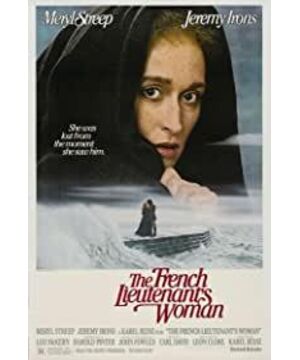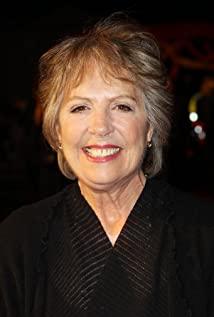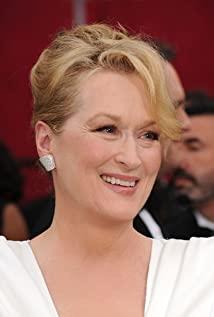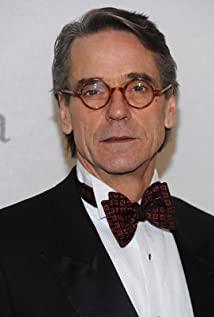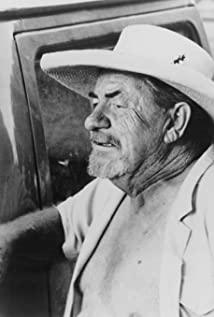This film does exactly that, adapted from the British novel "The French Lieutenant's Woman". At that time, almost most people thought that the novel was difficult to be adapted into a movie. Because there are many subjective feelings about the author's personalization in the novel, it is difficult to adapt it into a movie. Therefore, although most filmmakers see the attractiveness of this story, they can only stay away due to the lack of film scripts available for shooting. .
At that time, Karel Reitz found the world-famous writer Harold Pinter, and the two got together to discuss, after three weeks of fierce battle. Finally, a generation of literary masters has completed this almost impossible task.
With such a wonderful script, the director invited Meryl Streep and Jeremy Irons to join. In other words, in order to play the role of Sarah, Meryl Streep read a lot of Victorian novels and learned English pronunciation that is close to the Victorian accent.
After the film is adapted into a script, it is developed through the parallel narrative of two stories, which is commonly known as "play within a play", and is also called "layer structure" in terms of film structure.
The two are staggered and are narrated by two stories. At the same time, the narratives of the two stories are connected at certain key moments, causing the audience to reflect and experience the jump between the two stories, so as to better understand what the story is about to express. Emotions and themes.
In fact, the director expresses the values of people's emotional choices in two different eras. The value of love in the Victorian era led to the ups and downs between Sarah and Charles and then returned to the perfect ending, but after all, this kind of love has experienced too much pain (from the two sides) and a series of unnecessary unnecessary Injury (in terms of the person associated with the two). Therefore, such pain is an irrational choice, not to mention that the happiness of the last two people is just a good wish of the director, and I secretly think that it is impossible in real life.
The second is that now (then in the 1980s), Jack and Anna also sparked love in the interpretation of this Victorian love story. Jack gradually became indistinguishable, that is, close to Charles in the movie, and lost his rationality. However, Anna is not the Sarah in the movie, she is more rational and mature. After all, the background of the two is also different from that of the protagonist in the play. In reality, both of them have families. Therefore, Anna chose rationality in the end. Her choice was nothing more than beneficial to everyone and minimized the damage value. After all, in reality, people would rather give up their true feelings to seek the least harm to everyone. Such an approach is obviously more in line with modern thinking.
About, the application of lens language in the film and certain props such as mirrors. As well as the delicate and ingenious stitching of the two narrative lines, I will not repeat them.
The following mainly discusses a few issues of the film.
1. Although this film is very clever and perfect in many places. But it is not convincing enough in the handling of very important plots. When Charles promised Sarah that he would go back to repent and was about to marry Sarah, he found that Sarah was gone. In the movie, Sarah's departure seems very unconvincing, but people feel very at a loss. It was only later that Sarah said that I didn't want to destroy your family with your fiancée, and that I thought the need for freedom was clearly unconvincing. In the original novel, Sarah gave birth to a child, and Sarah's departure triggered by this aspect of the child is more convincing.
2. Next, another problem arises. That is, since Sarah said, I don't want to ruin your wedding to your fiancée. But given the circumstances at the time, the incident of Charles' repentance of marriage would definitely spread to a household level, not to mention that Sarah was the one who cared about Charles the most? So Sarah has no reason not to know. So now that you know that Charles has repented of his marriage, it means that you didn't want to ruin other people's weddings, but you just made a big mistake. Since you love him, why don't you be nice to him? It has to wait three years. If you were just because of freedom, then you loved Charles so deeply at that time, is it somehow (not explicitly pointed out in the movie) that it could be more important than love? So the fact that Sarah gets pregnant and gives birth to a baby in the movie raises a lot of questions.
3. Personally, I feel that the director did not go deep enough in the scene where Charles and Sarah met three years later. Logically speaking, this should be the most important part of the whole film, so the director can't be careless. However, the effect of shooting is somewhat unsatisfactory. The part of Charles going upstairs to meet Sarah in the opening chapter was well shot, especially the props of blocking the white pillars, which was very interesting, but why not put more effort into it? Brought it right away. After entering the house, it becomes impossible for people to be truly emotional. Charles walked straight into the house, and the two had an inexplicable conversation. Then Charles started to get mad, furious, and pushed Sarah to leave. When she turned around, she found that Sarah was so pitiful, and she became emotional again. Finally, the two of them closed the gap after three years, lived happily together, and roamed the lake in a boat. In this play, it should be said that the psychological play is the key point. One of the most important people in your heart suddenly left you for three years. When you don't know if she's dead or alive, a letter suddenly says she's alive and incognito somewhere (it seems a bit like Yang Guo and Xiaolongnu in "The Condor Heroes", hehe). Then you visit here and meet him. After she left, what a blow and decadence you have endured, you miss her day and night, all the time. At the first meeting, you may be at a loss for words, and you may stare for a long time. We don't care about them, at least in this scene, the psychological drama should occupy a large position, and the mutual transformation requires more details and actions to express. No, just ask a few random questions, then growl and get angry, and suddenly make up again. In this scene, I personally feel that the director did not shoot very well, and when it was time to impress the audience the most, he suddenly missed a sigh of relief.
To sum up, after putting aside these shortcomings (personally I feel that since Sarah disappeared, the filming of Victoria's scene was not sincere and moving, but I breathed a sigh of relief), this film is still a masterpiece of the 1980s, and even more so. It is a monument of British cinema and two superstars.
View more about The French Lieutenant's Woman reviews


